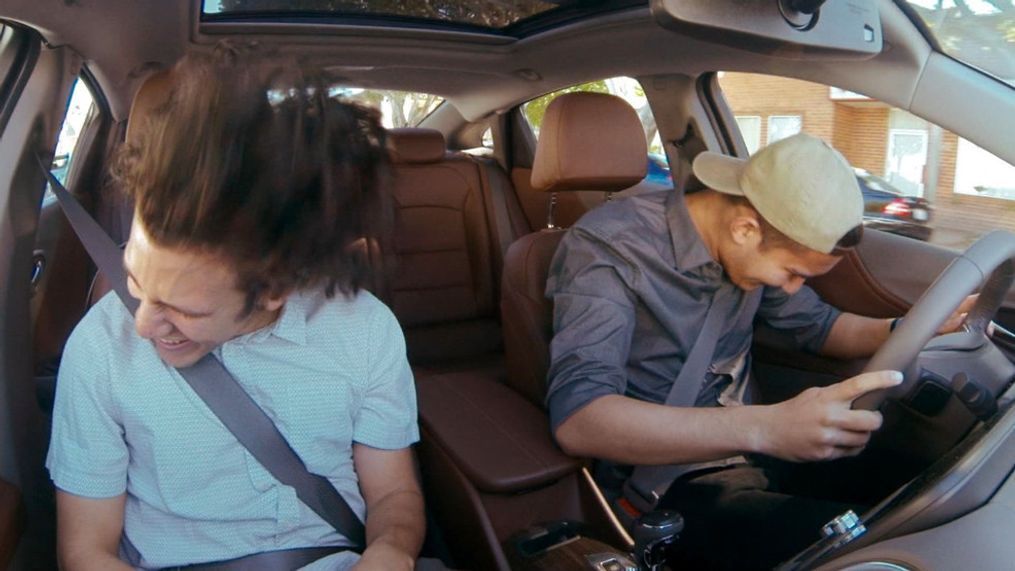How to keep your teen from drinking and driving

Roughly one-third of Americans don't get enough sleep, and we have a hunch that many of those fatigued folks are parents of teenagers. When adolescents begin spending more time away from home, in the company of their friends, it can leave adults tossing and turning, waiting for teens to get home.
One of the biggest concerns that parents have involves drinking and driving--and rightly so. According to the Centers for Disease Control and Prevention, "unintentional injuries" account for nearly half of all teenage deaths, and of those injuries, 73 percent involve car crashes. Alcohol plays a role in roughly half of those incidents.
ALCOHOL POLICIES
So, what can you do to keep your own teen safe when you're not around? Some say that a hands-off approach works best with young people, but a recent study suggests that being hands-on is far more effective.
ALSO SEE: Utah takes toughest in nation stance on drunk driving
That study is entitled "Alcohol Policies and Alcohol-Related Motor Vehicle Crash Fatalities Among Young People in the US" (PDF). The writing is on the technical side, but here's the important bit, in layman's terms:
"More restrictive alcohol policy environments are clearly associated with lower odds of alcohol-related [motor vehicle crashes], an effect that holds for drivers and passengers alike and across age and sex."
In other words, creating an environment in which the consumption and purchase of alcohol is restricted reduces the number of people killed in drunk-driving incidents.
That might seem obvious--after all, if you can't buy booze on Sunday, chances are, alcohol-related crashes will drop that day. However, the authors of the study note that until now, most studies have focused on single bits of legislation. For example, we're sure that there will be more than a few analyses of Utah's new, tougher drunk-driving law, which reduces the maximum blood alcohol content level from 0.08 to 0.05.
This study took a different approach and looked at the entire alcohol policy environment--that is, the web of laws that govern purchase and consumption. And the researchers found a direct link between stricter laws and lower fatality rates.
WHAT CAN YOU DO?
Parents can lay down the law in their own houses, but most don't have the power to do so at the state or municipal level.
However, the same principles outlined above hold true around the homestead. Dr. Tim Naimi says that parents play a crucial role in determining how young people think about alcohol. Specifically, teens are likely to mirror their parents' drinking habits. If parents abstain, kids are more likely to avoid alcohol. If mom and dad drink heavily, kids will likely see that as acceptable.
And Naimi notes that kids are smart: if parents say one thing and do another, teens are more likely to do as adults do, not as they say.
Given all that, here are a few useful tips to reduce the chances that your child will drink and drive--or ride with peers who've been doing so. None of these are foolproof, but science suggests that they can help.
1. Set a good example for your child, even before they reach their teens. If mom and dad have been hitting the bottle hard for the first 12 years of Junior's life, suddenly switching to iced tea on his 13th birthday may not do much to keep him from boozing it up.
2. Set strict rules about consuming alcohol. Don't just assume that your child will follow your example. Make your household alcohol policy explicit. Teens should know that they're forbidden to drink.
3. Set strict rules about socializing with people who are consuming alcohol. You can't control your child's friends, but you can control the way your child behaves when she's with them. As your parents probably told you years ago, tell your own kids not to spend time with their peers who might be drinking, and under no circumstances should they get in a car with anyone who's been drinking.
4. Encourage kids to call you (or better yet, a ridesharing company like Lyft) if the need arises. Everyone makes mistakes, especially teens, who are just beginning to understand what independence feels like. When they do screw up--if, for example, they've been hanging out with friends who've gotten drunk--let them know that they can call you for a ride home without fear of reprisal. Reward them for their honesty and treat them like the adult they want to be.
5. Support tougher alcohol laws. Contact your elected officials and encourage them to support legislation that toughens alcohol laws. You don't need to worry about inciting another Prohibition--America's alcohol lobby is too nimble and well-funded to let that happen.
As we said, none of these tactics ensures success, but science shows that they're steps in the right direction.
Read more from Internet Brands Automotive:
- 2018 Mercedes-AMG GT C Roadster first drive review: a special sports car, topless or not
- 2019 Porsche 911 spy shots
- Ex-Donald Trump Ferrari fails to sizzle at auction
- 2017 Volvo V90 Cross Country first drive review: the wagon Americans should want
- Careful crossing the street: pedestrian deaths soared 11 percent last year
